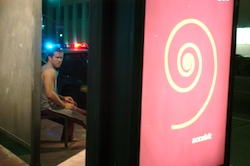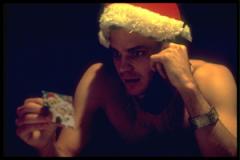Jordan Mechner has posted the [original screenplay for Prince of Persia](http://jordanmechner.com/blog/2010/10/pop-orig-screenplay/), which better reflects the movie he and I hoped to make back when we set up the project in 2004.
I didn’t do any real writing on PoP — my hands never touched the keyboard — but I worked with Jordan extensively on the pitch, outline and first few drafts of the project. My involvement essentially ceased after this 2005 draft, when I turned my attention to Charlie and the Chocolate Factory and The Nines. Jordan and I also cowrote Ops, a pilot for Fox which you can read in the [Library](http://johnaugust.com/library).
You’ll notice many story and structural changes between this draft and the finished film. One of the biggest is in the opening: the movie adds backstory setting up Dastan as a fair-minded orphan adopted by the king. I prefer the original, which let him be the reckless gambler with no real responsibility, since he was third in line to the throne.
It’s the difference between Han Solo and Luke Skywalker, and sets a very different tone for the story.
You can check out the script and discussion on [Jordan’s blog](http://jordanmechner.com/blog/2010/10/pop-orig-screenplay/).
 — @josephsaid
— @josephsaid Todd Gaines never shot anyone, and had no intention of killing Ronna. He wanted to scare her.
Todd Gaines never shot anyone, and had no intention of killing Ronna. He wanted to scare her.